Velo-city 2014
The Velo-city 2014 conference was held in Adelaide, the first time that this global event has been held in the Southern Hemisphere. And what a fantastic conference it was. Given its great reputation, it attracted a huge number of Kiwis (49 by the latest count) of an overall attendance of around 600. The conference was held from 27 to 30 May at the Adelaide Convention Centre. It was the third Velo-city attendance for ViaStrada director Axel Wilke, who previously attended in Paris (2003) and Munich (2007), and who provides these reflections.
In line with previous Velo-city conferences, the cities that report good progress on cycling issues have strong political leadership in common. The conference featured an outstandingly large number of keynote speakers (I counted 28 of them), and some of them were truly inspiring. I'll let you know my favourite presenters later, but first a bit about the conference itself.
Opening ceremony
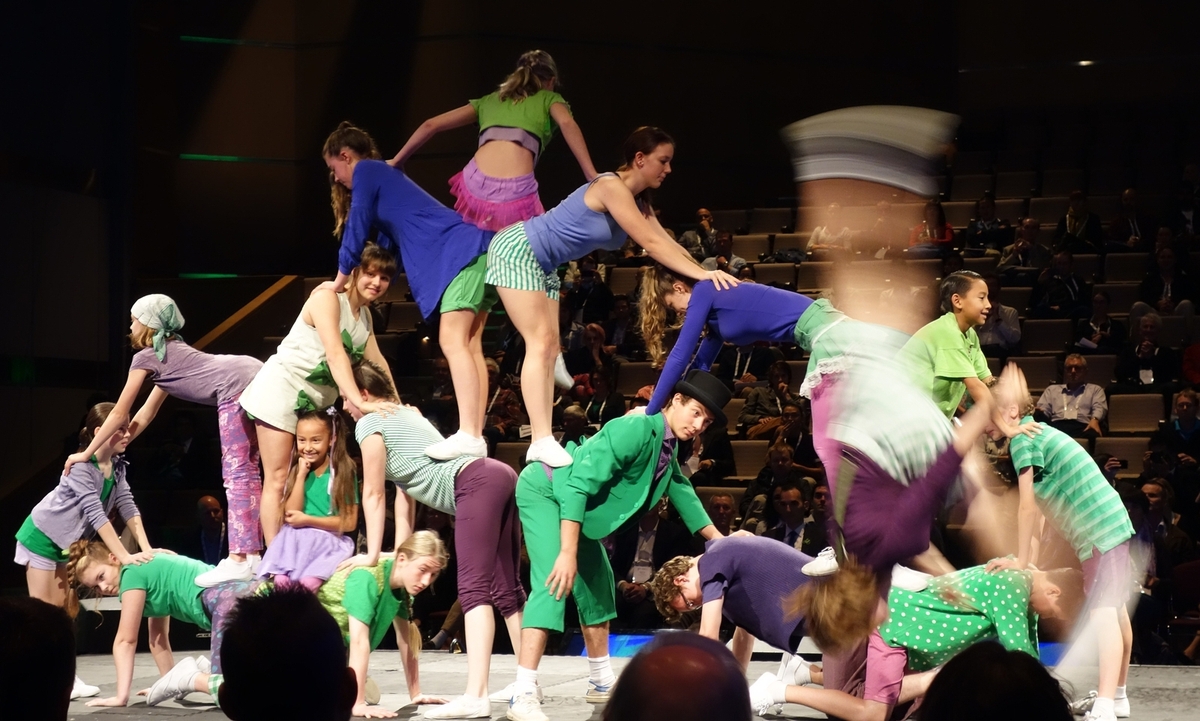 I've never been to a conference before where the opening ceremony had such great entertainment value. The highlight for me were the Cirkidz, who were incredibly skilled. Mikael Colville-Andersen, the guy who coined the terms 'Cycle Chic' and 'Copenhagenize' also had great entertainment value. I can't repeat the punchline of his presentation here because it's unprintable (but funny it was!).
I've never been to a conference before where the opening ceremony had such great entertainment value. The highlight for me were the Cirkidz, who were incredibly skilled. Mikael Colville-Andersen, the guy who coined the terms 'Cycle Chic' and 'Copenhagenize' also had great entertainment value. I can't repeat the punchline of his presentation here because it's unprintable (but funny it was!).
Bike breakfast
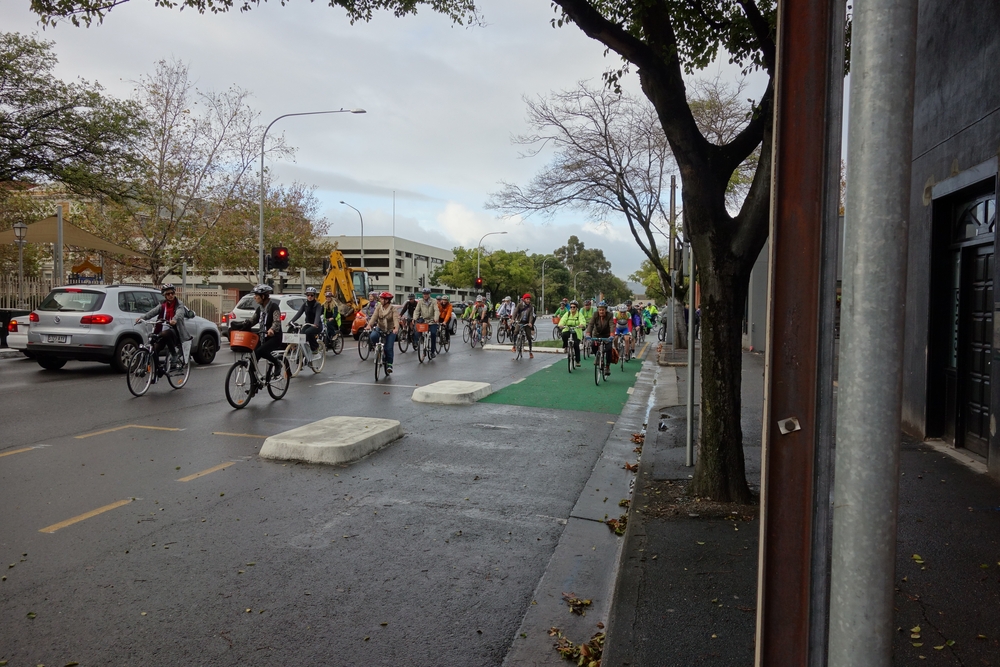 A breakfast was held in Victoria Square one morning, followed by a bike ride back to the Convention Centre. This gave attendees a chance to check out their new separated bicycle facility in Frome Street. And I have thus listed two big controversies: the bike ride caused traffic delays which some people didn't like, and Frome Street has become a local body election issue. The current mayor has pledged to finish the route if he gets re-elected in November 2014, whilst his main opponent has pledged to remove what has already been built. Just like in New Zealand, enlightenment doesn't appear to grow on trees.
A breakfast was held in Victoria Square one morning, followed by a bike ride back to the Convention Centre. This gave attendees a chance to check out their new separated bicycle facility in Frome Street. And I have thus listed two big controversies: the bike ride caused traffic delays which some people didn't like, and Frome Street has become a local body election issue. The current mayor has pledged to finish the route if he gets re-elected in November 2014, whilst his main opponent has pledged to remove what has already been built. Just like in New Zealand, enlightenment doesn't appear to grow on trees.
Plenaries and sub-plenaries
The main keynote speakers addressed the whole audience, whilst people not quite as well known were slotted into three or four parallel sub-plenaries, where attendees had to choose. I found this concept great and did not have too much trouble taking a pick, and I was happy with all the sub-plenaries I went to. But this system meant that one couldn't see all the keynote speakers, and I missed hearing Glen Koorey's keynote on 'More people riding = healthy everything'.
Presentation formats
There were a variety of presentation formats.
Learnshops
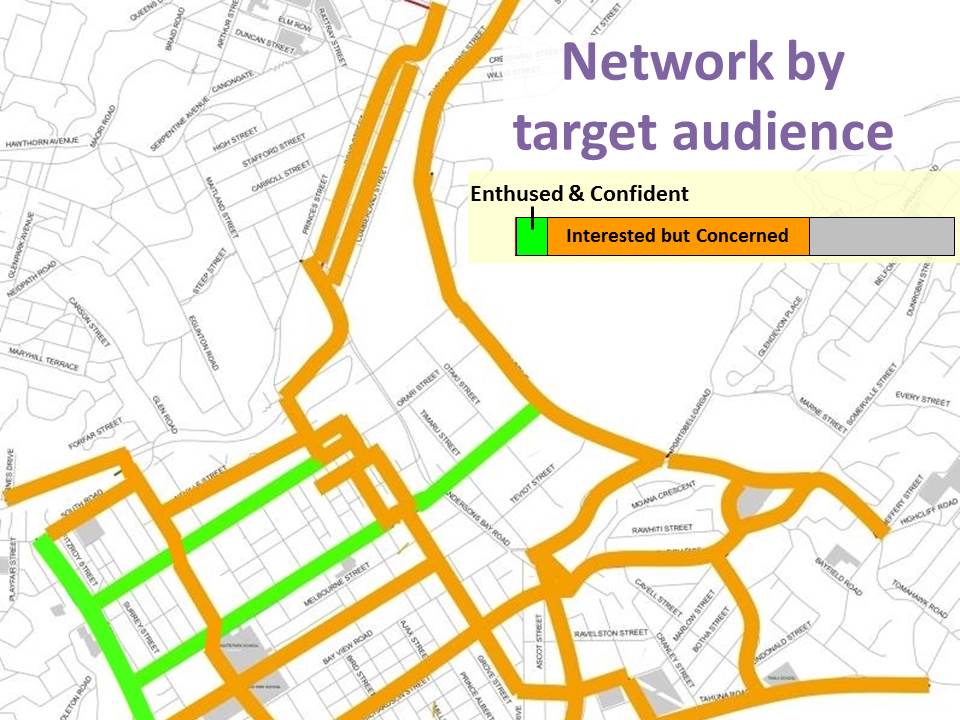 This format was closest to a 'normal' conference presentation. There were up to seven concurrent streams, each with three presentations of 15 minutes. In each stream, the presentations were given one after another, and attendees then discussed what they had heard at their tables, and reflections, questions and feedback was offered from each table. This worked really well and is a great format, but seven concurrent streams was too much for my liking. I would have been happier with fewer parallel sessions to choose from (say up to five), as it really felt like you missed too much. I presented on the trendsetting South Dunedin project in one of the learnshops.
This format was closest to a 'normal' conference presentation. There were up to seven concurrent streams, each with three presentations of 15 minutes. In each stream, the presentations were given one after another, and attendees then discussed what they had heard at their tables, and reflections, questions and feedback was offered from each table. This worked really well and is a great format, but seven concurrent streams was too much for my liking. I would have been happier with fewer parallel sessions to choose from (say up to five), as it really felt like you missed too much. I presented on the trendsetting South Dunedin project in one of the learnshops.
Round tables
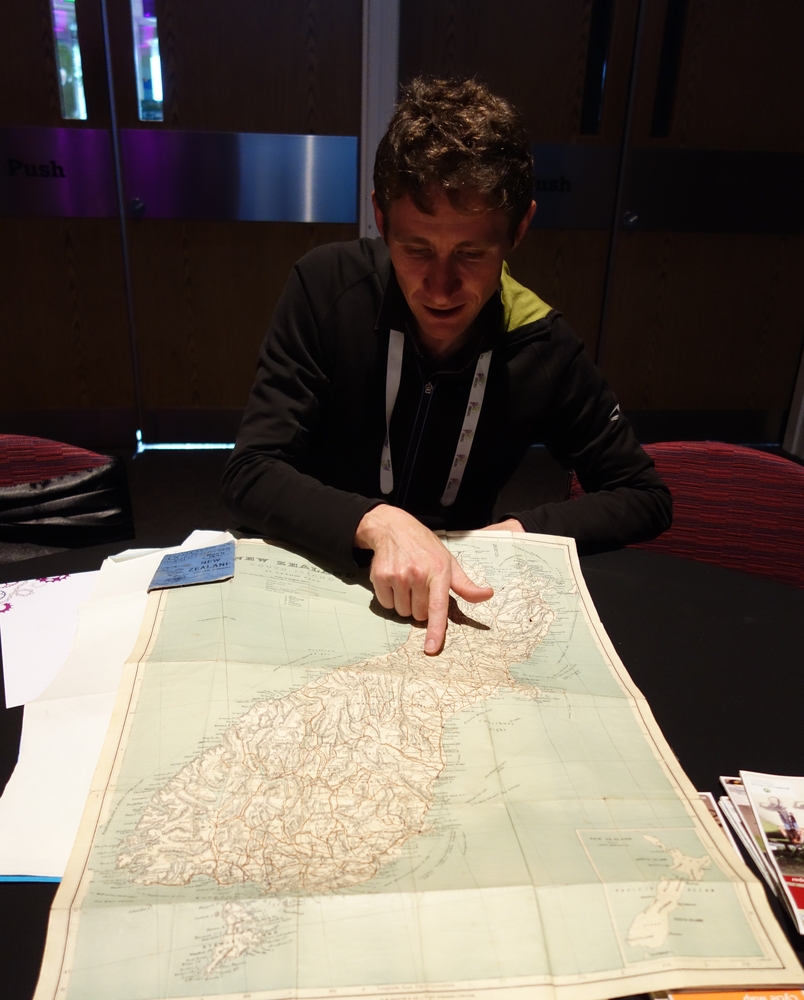 In this classic table format, presentations of 10 minutes were given to the attendees around a table, with 15 minutes of questions and discussion afterwards. When time is up, delegates go to another table. This is a good format, but doesn't lend itself well to some topics, for which learnshops are more appropriate. Attendees once again have to make a choice, as there are many more round tables than there is time to go to each and every one of them.
In this classic table format, presentations of 10 minutes were given to the attendees around a table, with 15 minutes of questions and discussion afterwards. When time is up, delegates go to another table. This is a good format, but doesn't lend itself well to some topics, for which learnshops are more appropriate. Attendees once again have to make a choice, as there are many more round tables than there is time to go to each and every one of them.
Spin cycle
This sounds a bit like having a workout at the gym and yes, it has some of those elements. Each presenter has 15 slides, and each slide is shown for 15 seconds. So you have 3 minutes and 45 seconds for your presentation and you better keep up with your slides, as they advance automatically. When you are done, the next presenter is already at the lectern at the other end of the stage. Spin cycle presentations are given to the whole conference audience; no such thing as streaming here. It's incredibly fast paced and fun to watch, but it has to be the most nerve-wracking form of presenting for the poor sods talking to the audience. Even old hands found this presentation style tough going, and I've never seen so many super-nervous presenters. But it's great fun as long as you are in the audience. And there's no drama if a presentation is boring, as it's all over in no time.
Some great quotes
Here's a selection of great quotes. First up, a speaker talking about the Austrian way of promoting car sharing:
If you want to drink a glass of milk, you don't have to buy a cow
Florian Lennert, a rather extrovert German entrepreneur:
There is less debate on climate change than on gravity
The rock star of transport planning, Janette Sadik-Khan, quotes her former boss, the ex of New York mayor Michael Bloomberg, who is known to be rather fond of evidence:
In God we trust, everyone else bring me data
Most inspiring presentations
Some things always stand out and the good thing is that they were filming the keynote speakers, so in due course, I should be able to provide links to my list of most inspiring presentations. Apart from the first one, which stood out big time for me, they are in no particular order. Here we go:
Tim Papandreou
SF from start(er) to finish: how San Francisco is tripling bike mode share by 2018. I really like how they are going about transport planning in SF. It's a total package, and what resonated well with me in that context is Tim stating that addressing car parking is much more important than building bicycle infrastructure. Too many cities are shying away from that issue, and how they are managing car parking is world class (I might write a separate entry about that issue). It's probably the presentation I have learned most from, it had a huge amount of relevant content, and the delivery was rather slick.
Janette Sadik-Khan
Transformational leadership in action. If you haven't heard Janette present, look her up on Ted Talks. A brillant presenter with a strong message. She's credited with transforming transportation in New York.
Isabella Cawthorn
Wheel stylish - fashion in motion. Bella is a hugely energetic and persuasive Wellingtonian who is in charge of Frocks on Bikes. I'm fully behind their aim of 'normalising' cycling and their work is thus very important. A very slick spin cycle presentation.
Stephen Yarwood
The Lord Mayor of Adelaide, Stephen Yarwood, spoke on several occasions, including opening and closing the conference. His sub-plenary talk on Wednesday stood out for me. It wasn't so much about transport, but was an insightful motivational talk. Adelaide is lucky to have such an inspired mayor who by profession is a town planner.
Morten Kabell
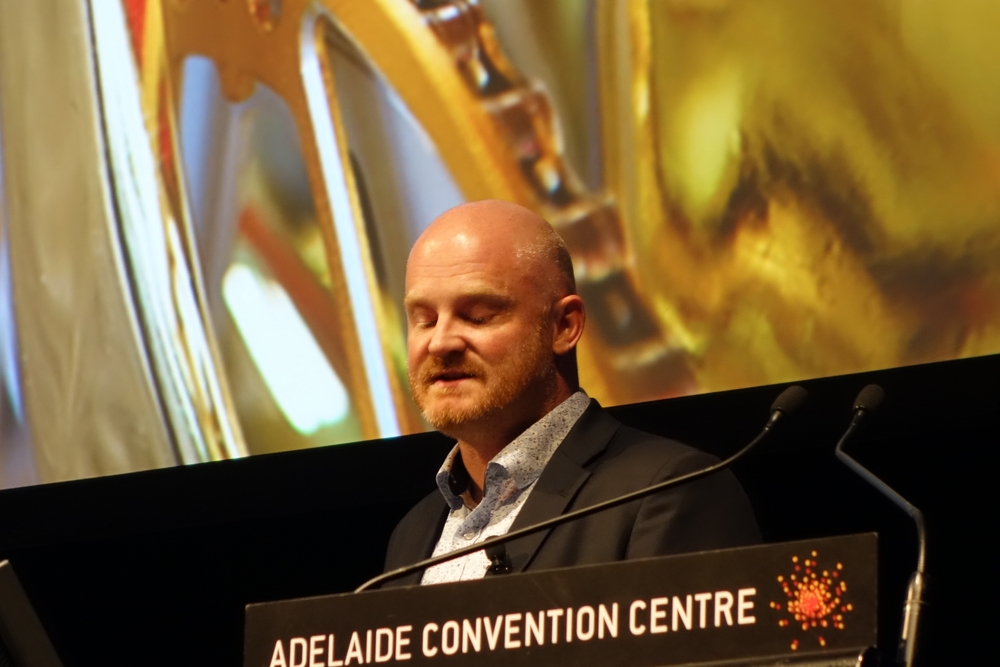 In the same sub-plenary, one of the Copenhagen Deputy-Mayors, Morten Kabell, gave an inspiring talk on where he sees Copenhagen moving. They are one of the world leaders when it comes to cycling, so to have so many ideas yet to be implemented is great to see. The images used in his presentation were outstanding.
In the same sub-plenary, one of the Copenhagen Deputy-Mayors, Morten Kabell, gave an inspiring talk on where he sees Copenhagen moving. They are one of the world leaders when it comes to cycling, so to have so many ideas yet to be implemented is great to see. The images used in his presentation were outstanding.
Florian Lennert
Mobility for future cities. This German entrepreneur, who is a director at the Innovation Centre for Mobility and Societal Change, gave a fact-filled and fast-paced presentation. Another very slick performance and very persuasive. You can see him present a previous but similar presentation at TEDxStuttgart.


